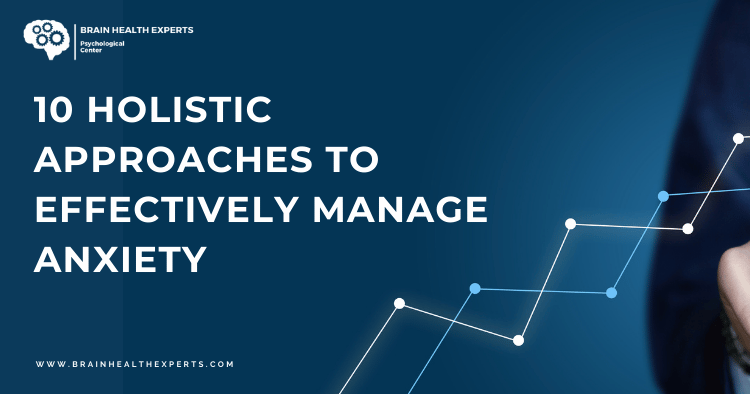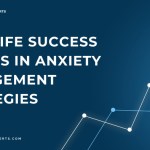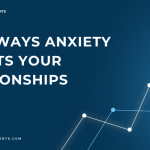Table of Contents
- Understanding Holistic Approaches to Anxiety
- Mindfulness Meditation
- Yoga and Movement Therapies
- Breathing Exercises
- Herbal Remedies
- Nutritional Support
- Aromatherapy
- Acupuncture
- Journaling
- Nature Therapy
Understanding Holistic Approaches to Anxiety
Anxiety can feel overwhelming, but holistic approaches offer a comprehensive way to manage it. Unlike conventional treatments that may solely rely on medication, holistic methods consider the mind, body, and spirit, aiming to promote overall well-being. This article will explore ten effective holistic strategies to help you manage anxiety, allowing you to regain control over your life. For further insights on managing anxiety, consider reading 10 Effective Strategies to Manage Anxiety and Improve Mental Health.
Mindfulness Meditation
Mindfulness meditation encourages you to focus on the present moment without judgment. Research has shown that this practice can significantly reduce anxiety levels. By cultivating awareness of your thoughts and feelings, you can develop a greater sense of control.
How to Start:
- Find a quiet space.
- Sit comfortably and close your eyes.
- Focus on your breath, observing each inhale and exhale.
- Gently bring your focus back if your mind wanders.
Resources:
- Mindful.org
- For enhancing your mindfulness practice, check out 10 Mindfulness Practices to Reduce Stress Effectively.
“Mindfulness is not about stopping thoughts, but recognizing that they are just thoughts and letting them pass.”
Yoga and Movement Therapies
Yoga is not just physical exercise; it’s a holistic practice that combines breath control, meditation, and physical postures. Studies indicate that regular yoga practice can reduce anxiety levels by promoting relaxation and mindfulness.
- Benefits:
- Enhances flexibility and strength.
- Encourages relaxation through deep breathing.
- Connects mind and body.
- Types of Yoga for Anxiety:
- Hatha Yoga
- Restorative Yoga
- Kundalini Yoga
Explore more about the benefits of positive thinking in 10 Positive Thinking Exercises to Boost Mental Health.
“Yoga is the journey of the self, through the self, to the self.” – The Bhagavad Gita
Breathing Exercises
Deep breathing techniques can activate the body’s relaxation response, counteracting the physiological effects of anxiety.
- Simple Breathing Exercise:
- Inhale deeply through your nose for a count of four.
- Hold your breath for a count of four.
- Exhale slowly through your mouth for a count of six.
- Repeat for five minutes.
Visual Aid:
| Step | Action | Duration |
|---|---|---|
| 1 | Inhale through nose | 4 seconds |
| 2 | Hold breath | 4 seconds |
| 3 | Exhale through mouth | 6 seconds |
| 4 | Repeat | 5 minutes |
For more techniques, refer to 10 Proven Stress Management Techniques for Daily Relief.
“Breathing in, I calm my body. Breathing out, I smile.” – Thich Nhat Hanh
Herbal Remedies
Certain herbs have been shown to alleviate anxiety symptoms. Always consult a healthcare provider before starting any new supplements.
- Effective Herbs:
- Chamomile: Known for its calming effects.
- Lavender: Often used in aromatherapy for stress relief.
- Ashwagandha: An adaptogen that helps the body manage stress.
Resource:
Also, consider exploring Top 10 Herbal Remedies to Alleviate Stress Naturally.
“Nature itself is the best physician.” – Hippocrates
Nutritional Support
What you eat can significantly impact your mental health. Nutrient-rich foods can help stabilize mood and reduce anxiety.
- Foods to Include:
- Omega-3 Fatty Acids: Found in fish, walnuts, and flaxseeds, they are known to support brain health.
- Magnesium: Dark leafy greens, nuts, and seeds can help regulate stress levels.
- Probiotics: Fermented foods like yogurt and kimchi can promote gut health, which is linked to mental well-being.
“Let food be thy medicine and medicine be thy food.” – Hippocrates
Aromatherapy
Essential oils can provide comfort and calmness, making aromatherapy a valuable tool in managing anxiety.
Popular Essential Oils:
- Lavender: Reduces stress and improves sleep.
- Bergamot: Known for its uplifting properties.
- Ylang Ylang: Helps lower blood pressure and promote relaxation.
Usage Tips:
- Use a diffuser to disperse oils in your living space.
- Add a few drops to your bath for a soothing experience.
For more on managing stress with essential oils, check out 10 Ways Music Therapy Eases Stress & Boosts Wellbeing.
“Aromatherapy is the art and science of using the natural oils extracted from flowers, bark, stems, leaves and other parts of a plant to enhance psychological and physical well-being.” – Robert Tisserand
Acupuncture
This ancient practice involves inserting thin needles into specific points on the body to promote energy flow and reduce stress. Research suggests that acupuncture can effectively decrease anxiety symptoms.
What to Expect:
- A licensed practitioner will assess your needs.
- Sessions typically last 30-60 minutes.
- Many report feeling relaxed and at ease during and after treatment.
“Acupuncture is a safe and effective treatment for anxiety and stress.” – National Center for Complementary and Integrative Health
Journaling
Writing can be a powerful tool for self-reflection and emotional release. Journaling allows you to express your thoughts and feelings, helping you process anxiety.
How to Start:
- Set aside a few minutes each day.
- Write freely about your thoughts and experiences.
- Reflect on your entries to identify patterns and triggers.
For additional journaling techniques, refer to 10 Journaling Techniques to Manage Anxiety Effectively.
“Journaling is like whispering to one’s self and listening at the same time.” – Mina Murray
Nature Therapy
Spending time in nature can improve mental well-being and alleviate anxiety. Nature therapy, or ecotherapy, encourages individuals to connect with the natural environment.
Ways to Incorporate Nature:
- Take regular walks in a park.
- Engage in gardening.
- Practice mindfulness in a natural setting.
Resource:
“In every walk with nature, one receives far more than he seeks.” – John Muir
FAQs
1. How long does it take to feel the effects of holistic approaches?
The timeline varies by individual and the method used. Some may feel immediate relief, while others may require consistent practice over weeks or months.
2. Can I combine these approaches?
Absolutely! Many people find that a combination of methods works best for them.
3. Are these approaches suitable for everyone?
While holistic approaches can benefit many, it’s essential to consult a healthcare professional, especially if you have underlying medical conditions.
Incorporating these holistic approaches into your daily routine can empower you to manage anxiety effectively. Remember, it’s all about finding what works best for you and nurturing your mental well-being. Start small, be patient with yourself, and embrace the journey toward a calmer, more balanced life! For further reading on enhancing mental health, check out Top 10 Must-Read Books on Cognitive Behavioral Therapy.





